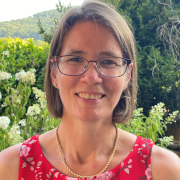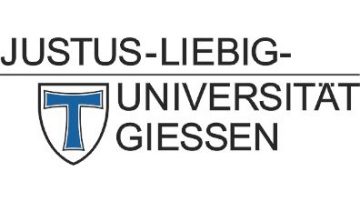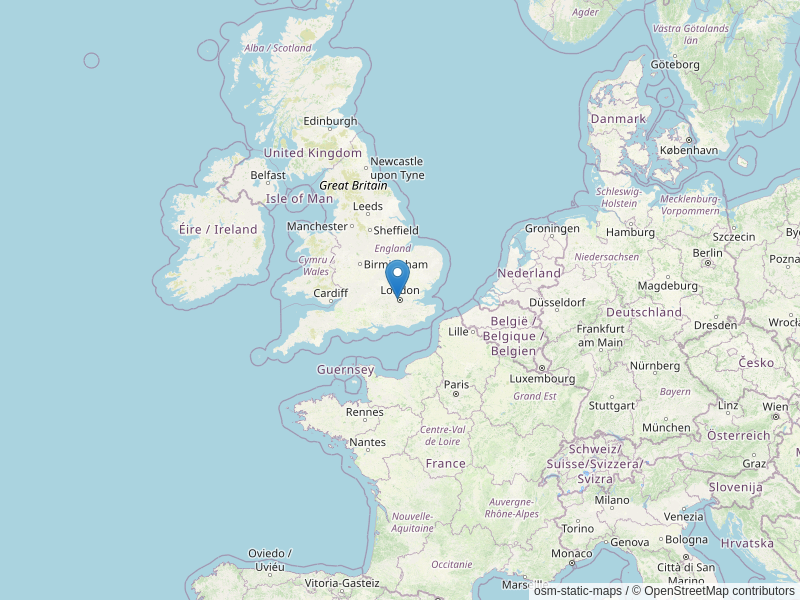In Profile - Nicola McLelland

© DAAD/McLelland
I studied German and French at the University of Sydney, Australia. After two years on a DAAD scholarship in Bonn, Germany, I gained my PhD from the University of Sydney in medieval German literature. An MPhil in Linguistics at the University of Cambridge sparked my interest in the history of people’s ideas and beliefs about language and how to use it. My first post was at Trinity College, Dublin; I’ve been in German, now part of the Department of Modern Languages and Cultures, at Nottingham since 2005. I am currently President of the Association for German Studies in the UK and Ireland.
What does a typical day in your job look like? Is there any link/relation to German/ Germany?
In my day job at the moment, I am Head of School, which means almost no teaching, which used to be one of the main ways to use my German regularly and share my enthusiasm. But I’m also President of the Association for German Studies in the UK and Ireland, and we are busy finalizing our programme for our annual conference in early September. We’ve also been having conversations – led by younger colleagues in the field – about how to diversify German Studies curricula and how to make our discipline and its structures more inclusive.
Most of my research is about the German language, one way or another, and I also have a German PhD student who is close to finishing his dissertation on youth language in Youtube comments. He’s opened my eyes to a whole new world of German language and culture.
What sparked your interest in education and teaching? Especially in teaching abroad?
It was always clear to me that I wanted to teach German to students as a foreign language – nothing beats the experience of the incomprehensible and foreign becoming comprehensible, and helping others share that experience motivates me.
Which experiences have you gained during your stay in Germany and how has it influenced your career path/ personal development?
My first ever time in Germany was staying, as a teenager, with a host family in the north of Germany. I remember them asking me if I could tell that the father had a strong northern accent. I couldn’t tell at all, I was far too busy just trying to understand. Yet when I returned a few years later, it was so obvious, I couldn’t believe I had not noticed it all along!
The family – with whom I am still in touch – were so completely welcoming and gave me an insight into a world that was completely different to my own in every way – not just German, but life in a small village, compared to my life in Sydney, Australia. I had no idea at the time how much it would mark me. During the European football championships, I really did want Germany to beat England (I’m not actually English, you see, though I have lived in England for many years now).
I spent two years studying at the University of Bonn in the 1990s, funded by the DAAD, and it gave me friends for life, as well as leading to a whole career. I have been so lucky. As well as meeting students from all over Germany, I also lived with many other international students – I learnt about Diwali from an Indian neighbour, several cake recipes from a Hungarian girl, a bit of Russian from an Azerbaijani law student, and French with a very different accent from students from the Ivory Coast. At the time I was fixated on experiencing every drop of Germanness, but in hindsight, many of those encounters with international students taught me a lot too.
I was, though, phenomenally lonely when I first arrived, and I swore never to forget how hard it is to be a stranger in a strange land – and that’s even though I arrived with very good German and could easily be taken as German at first glance. So I had it very, very easy, in fact.
Which city in Germany have you been studying and what were the reasons for choosing it?
I studied in Bonn. I chose Bonn because of the professor who was there at the time, Professor Christoph Cormeau, who was really generous in supporting my work on my PhD. Little did I know I was also choosing the perfect mix of federal capital and small town , with a rich cultural life and easy access to be beautiful countryside. So I was very lucky.
What do you like in or about Germany?
I love, love, love German cakes, and therefore I love German cafés. The one cake I know I’m supposed to like, but just don’t, is Bienenstich. Sorry!
I also discovered vanilla-flavoured tea in Germany, and all kinds of tea, in fact. I love German pubs, where you can also get tea and hot chocolate – that was not possible in the Australian pubs I visited.
I loved the student choirs that I was able to sing in Germany, and loved getting to know both mainstream German choral music (especially Bach cantatas, but lots more too) and some very new works. One of the choirs had a reunion weekend a couple of years ago, and it was wonderful to be singing with them again.
Is there a German book or German author or maybe German film you always return to? If yes, why?
Goethe’s Erlkönig, which I first got to know in Schubert’s musical setting. I’ve taught it a few times and had to learn that the “punchline” at the end chokes me every time.
I was completely blown away by Gottfried’s Tristan story as an undergraduate in Sydney. The language was, and still is, wonderful, and I have to admit that I found the love story completely absorbing too.
Can you cook a German dish without a recipe? If so, which one and where have you learned it?
I once watched a Bavarian flatmate cook a lemon cake without a recipe – I was impressed that she just knew how much of everything to put in, by eye. I tried following her example and the result was inedible.
Yes, I can cook a German dish without a recipe: German Plätzchen – well, there is recipe, but it’s so easy I’ve memorized it and so have my kids: 200g plain flour, 200g wholemeal flour, 100g ground almonds, 250g sugar, 250g butter, and an egg. Mix. Bake. It is idiot-proof, which is just as well in my case.
The recipe comes from the mother of a friend, Miriam. They invited me to spend Christmas with the family one year and I learned the recipe then.
What advice would you give to students who are thinking of choosing your field of study/research?
German linguistics is such a rich field – you will never get bored. Everyone uses language, everyone has an opinion about language, and language is always changing. And we spend a lot of time learning or teaching language too. There is always something new to discover. This year I supervised an undergraduate project on people’s attitudes to language to refer to non-binary people in Germany. That question just didn’t exist when I was a student. Linguistics matters because it helps tackle some of the biggest questions we face in life too, like identity, social justice, and how we understand each other (or why we sometimes don’t). Getting to explore questions like that as they relate to German is just an added bonus that makes it more interesting still.
What advice would you give to UK/Irish students and researchers who are thinking of pursuing research abroad in Germany?
I would encourage everyone who has the chance to study abroad, whatever your subject area. It opens your mind in ways that you can’t really imagine until you’ve done it, and which you will never regret. Germany is just a beautiful and culturally rich place to do it. And, if you are as lucky as me, you will meet a lot of very warm people who will show you great kindness.
In 2020, Nicola McLelland has been awarded the Grimm Prize by the DAAD. The prize is awarded annually to an academic working in German Studies outside Germany who has made an outstanding contribution to international work in the area. Congratulations, Nicola!





